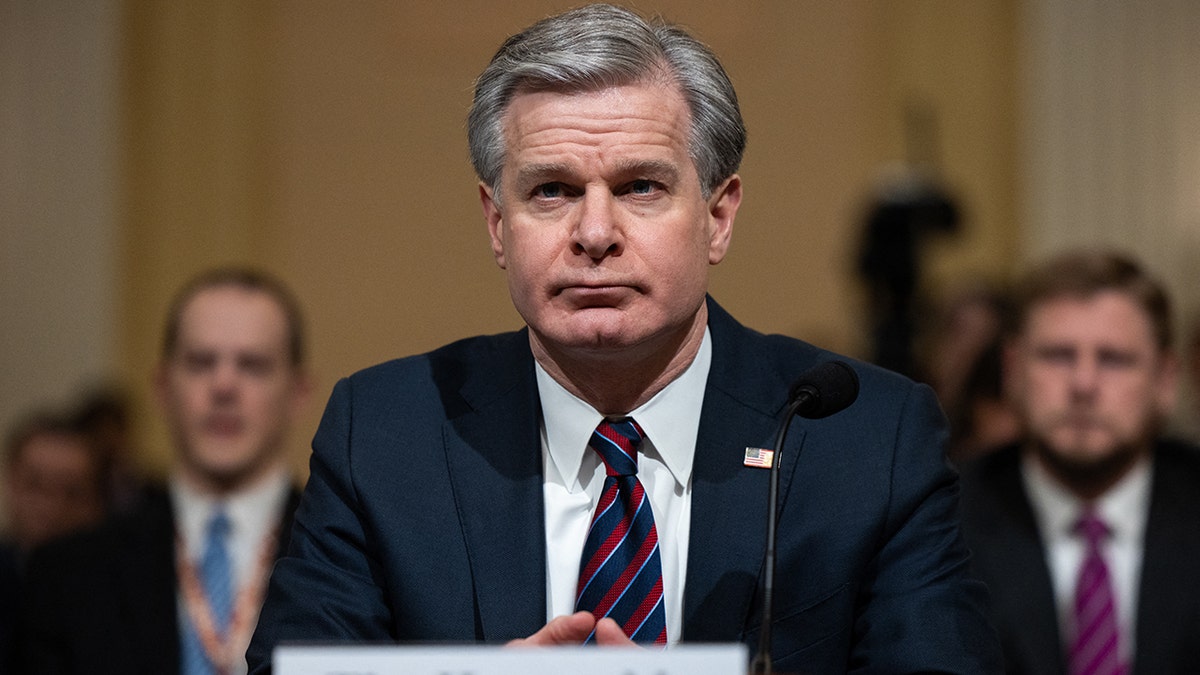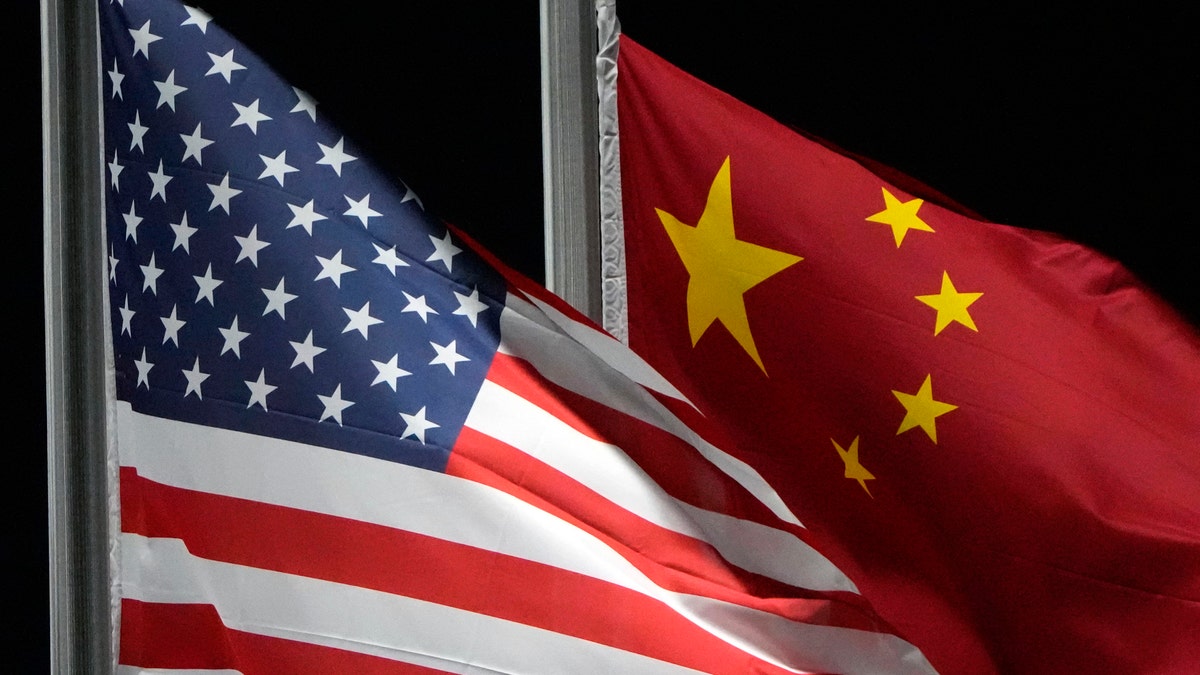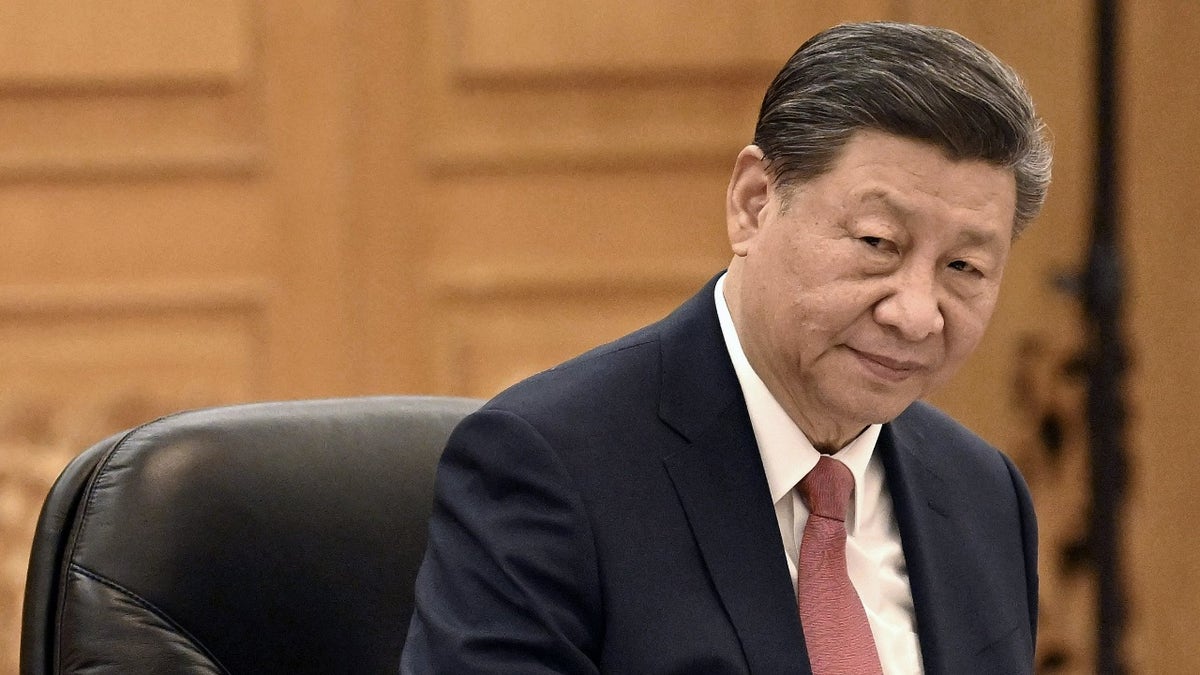Chinese missile manufacturer claims to have built the fastest train ever
A hyperloop train travels in a vacuum tube
China's cyberattacks against the U.S. and its allies are reaching a "fever pitch," FBI director Christopher Wray warned at the Munich Cyber Security Conference on Thursday.
Wray spoke to allies at the conference about hackers affiliated with the Chinese Communist Party (CCP) that are known to have infiltrated critical U.S. infrastructure and remain "poised to attack" even now. The event is playing host to hundreds of security leaders from Western countries.
"You might find your companies harassed and hacked, targeted by a web of corporate CCP proxies," Wray told the leaders gathered in Germany. "You might also find PRC [People’s Republic of China] hackers lurking in your power stations, your phone companies and other infrastructure, poised to take them down when they decide you stepped too far out of line, and that hurting your civilian population suits the CCP."
"China-sponsored hackers pre-positioned for potential cyberattacks against U.S. oil and natural gas companies way back in 2011, but these days, it’s reached something closer to a fever pitch," he continued. "What we’re seeing now is China’s increasing build-out of offensive weapons within our critical infrastructure, poised to attack whenever Beijing decides the time is right."
CHINESE HACKERS OUTNUMBER FBI CYBER PERSONNEL ‘BY AT LEAST 50 TO 1,’ WRAY TESTIFIES

China's cyberattacks against the U.S. and its allies are reaching a "fever pitch," FBI Director Christopher Wray warned at the Munich Cyber Security Conference on Thursday. (JULIA NIKHINSON/AFP via Getty Images)
Wray's message in Munich echoed his remarks to U.S. lawmakers, when he testified before Congress in late January. Wray and other government officials told the House Select Committee on the Chinese Communist Party that the U.S. is under attack every single day.
NEW GROUP LAUNCHES TO COMBAT CHINESE COMMUNIST PARTY INFLUENCE ACROSS US
"There has been far too little public focus on the fact that PRC hackers are targeting our critical infrastructure – our water treatment plants, our electrical grid, our oil and natural gas pipelines, our transportation systems. And the risk that poses to every American requires our attention now," Wray told lawmakers.

FBI Director Christopher Wray and other government officials told the House Select Committee on the Chinese Communist Party in late January that the U.S. is under attack every single day. (AP Photo/Kiichiro Sato)
The Joint Cybersecurity Advisery, made up of security groups from the U.S., U.K., Australia and New Zealand, announced in a report last week that Chinese hacking groups had maintained access to U.S. infrastructure for more than five years before being discovered.
The report stated that the cyber operation's goal was not intelligence gathering, but instead to gain access to and control critical infrastructure across the U.S. The report added that the hackers could wreak havoc on U.S. systems in the event of a major conflict between the U.S. and China.

Proxy groups for Chinese President Xi Jinping's government have launched consistent waves of cyberattacks against the U.S.
CLICK HERE TO GET THE FOX NEWS APP
The hackers' "choice of targets and pattern of behavior is not consistent with traditional cyber espionage or intelligence gathering operations," the report said. "The U.S. authoring agencies are concerned about the potential for these actors to use their network access for disruptive effects in the event of potential geopolitical tensions and/or military conflicts."












































